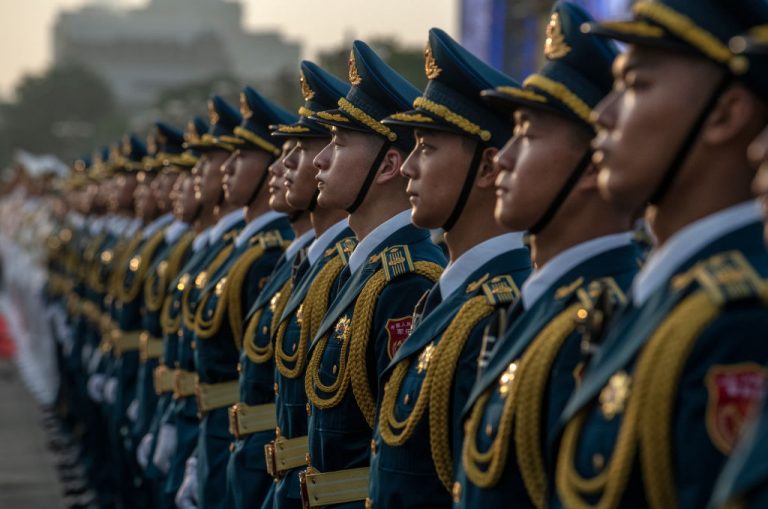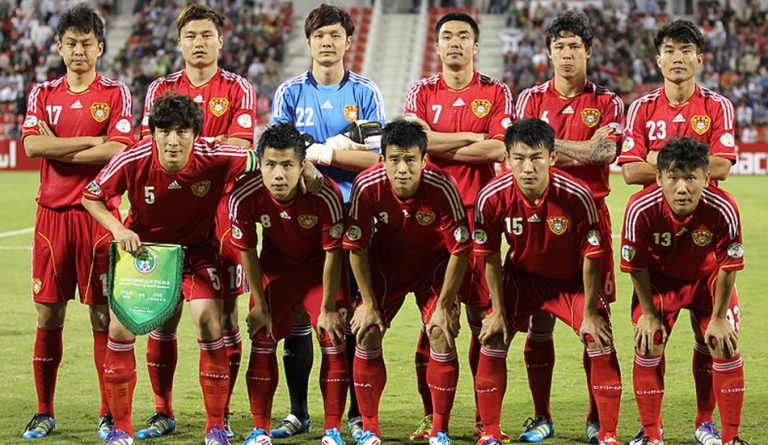During a recent ceremony to commemorate the 130th anniversary of communist dictator Mao Zedong’s birth, Chinese leader Xi Jinping proclaimed Taiwan’s reunification with mainland China as an “inevitable and righteous” cause.
The once-in-a-decade event, which was held at the Great Hall of the People on Tuesday (Dec. 26) in Tiananmen Square, served as not only a tribute to Mao’s enduring influence but also a reaffirmation of the Chinese Communist Party’s (CCP) agenda of absorbing Taiwan, the de facto independent island country that escaped Party rule following the Chinese civil war.
During his speech, Xi highlighted the impact of Chairman Mao, who led the CCP from the 1930s until his death in 1976, overseeing the takeover of mainland China in 1949 and tens of millions of deaths by famine, rebellion, and political repression.
Xi claimed Mao’s political philosophy was a “spiritual treasure” that would continue to guide China.
Led by Xi, members of the Politburo Standing Committee — the seven-man group that heads the CCP — paid their respects at Mao’s mausoleum by bowing three times in front of Mao’s marble statue as a symbolic gesture of reverence and commitment.
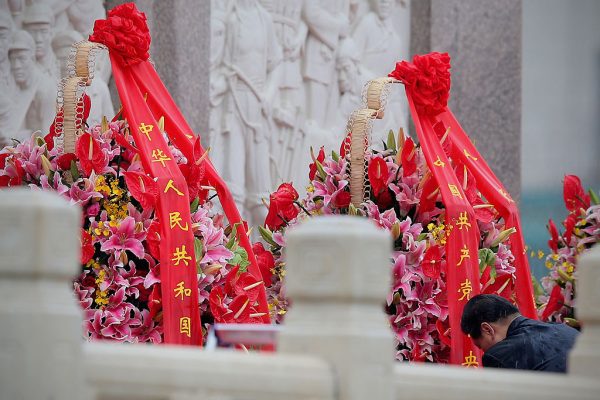
‘[Taiwan] must be reunited’
Success
You are now signed up for our newsletter
Success
Check your email to complete sign up
“Our motherland must be reunified, and it will surely be reunified,” said Xi during his address, while highlighting his unwavering stance on the Taiwan issue. He further added, “[We] firmly oppose anyone using any means to separate Taiwan from China.”
The statement, which comes at a crucial time given Taiwan’s general election slated for Jan. 13, has Beijing on high alert over the pro-independence stance of several front runners vying for the presidency. Formally known as the Republic of China (ROC), Taiwan has preserved its de facto independence and self-governance; its government once ruled all of China before communist rebels overtook the mainland in 1949.
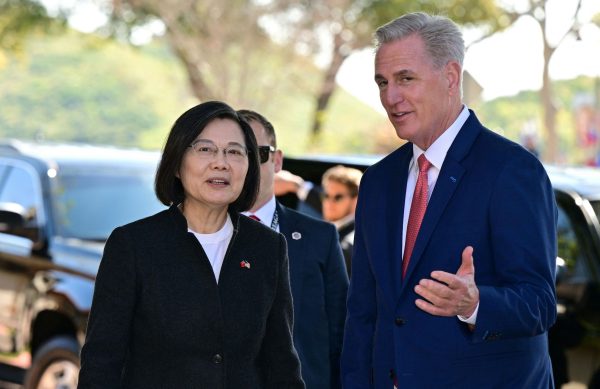
However, the CCP considers any support or recognition of Taiwan as a direct challenge to its sovereignty and territorial integrity. Consequently, it has long threatened to use military force and other necessary means to retake and reunite the self-ruling island with the Chinese mainland. It also requires all countries that wish to pursue diplomatic relations with it to first break off any ties with Taiwan in accordance with its One-China principle.
In recent years, Beijing has increased its military activities around the island and stepped up efforts to further isolate Taiwan diplomatically from the rest of the world.
MORE ON THIS: Beijing Sends Record Number of Fighter Jets Into Taiwan’s ADIZ
The ceremony and speech come at a time when China is navigating a complex international landscape, characterized by heightened tensions with the West and a sputtering national economy affecting its real estate and banking sectors.
Xi’s focus on strengthening the CCP to lead China’s modernization efforts reflects his commitment to maintaining the party’s relevance in the face of these challenges. “[We must work] to enable our party to adhere to its original mission … maintain vitality and vigor, and ensure that our party never degenerates, never changes its color, and never loses its flavor,” he said during the speech.
MORE ON CHINA’S ECONOMY:
- Moody’s Lowers Outlook on China’s Credit Rating, Citing Increased Debt Risks
- Italy Breaks Ranks With G7, Announces Departure From China’s Belt and Road Initiative
- Major Money Managers and Investors Wary of China Amidst Losses and Regulatory Scrutiny
- Here’s Just How Badly ‘Zero-COVID’ Has Damaged China’s Economy
During the address, Xi also touched upon the concept of “Chinese-style modernization” (中国式现代化) — a widely used term by state-controlled media to describe China’s path forward under his leadership. He contrasted this model with Western modernization by presenting it as a “brand new form of human civilization,” that is superior to other government structures.
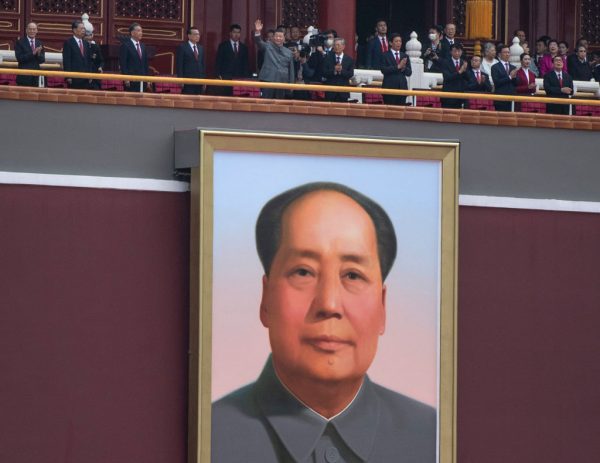
In addition to the ceremony in Beijing, dozens of tributes were held across the country — including in Mao’s hometown of Shaoshan in Hunan Province, and in Jinggangshan — a city in Jiangxi Province known as the “cradle of the communist revolution.”
A legacy of cruelty and death
Mao’s legacy in China is deeply complex and controversial — marked by both his role as a leader and as the architect of policies that led to widespread turmoil and suffering. His long tenure, particularly during the Great Leap Forward and the Cultural Revolution, was characterized by radical social and economic experiments that resulted in catastrophic consequences.
The Cultural Revolution, which Mao launched in 1966, plunged China into a decade of social and political upheaval. Though it was intended to reinforce communist ideology by purging elements of traditional and capitalist culture, the movement spiraled into a period of widespread abuse and bloodshed.
RELATED: Disappeared: The Faces of Human Rights Activists Silenced by Communist China
During this time, intellectuals, perceived political enemies, and countless ordinary citizens were targeted and persecuted by communist authorities. The witch hunts resulted in violence, humiliation, and the destruction of many relics, ancient structures, and cultural heritage. The era also saw a breakdown in social order that inflicted deep psychological and physical scars on Chinese society that continue on to this day.



